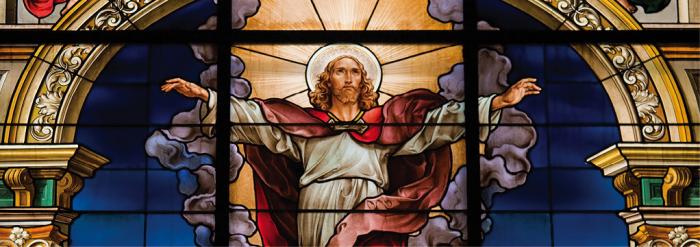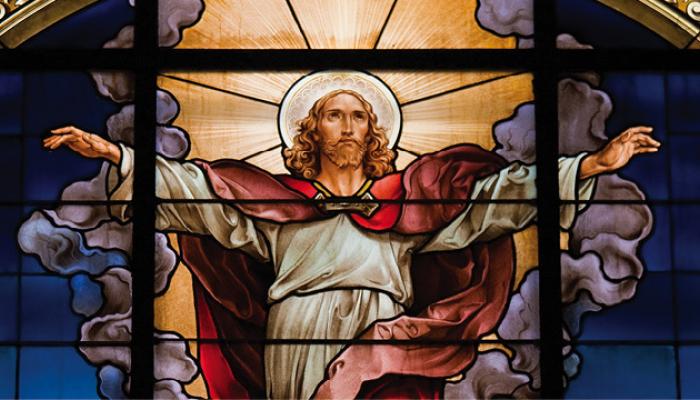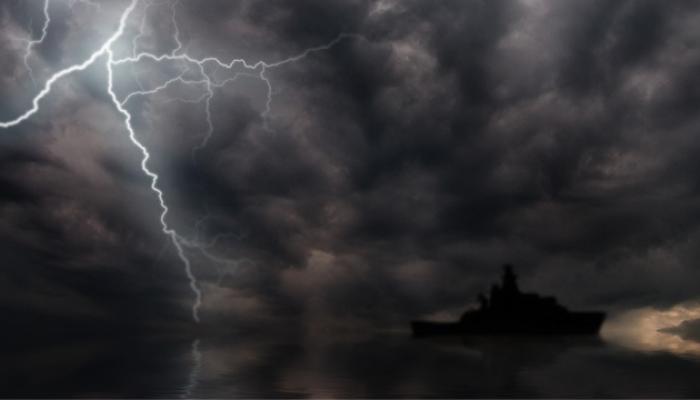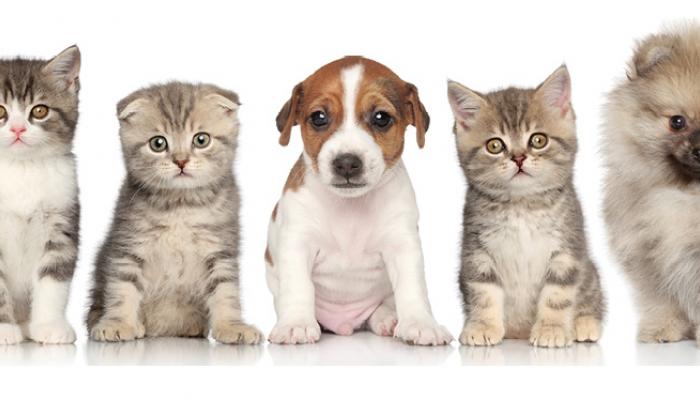
1.50 Hoe belangrijk is de verrijzenis?
Jezus was dood en werd weer levend. Hij verrees uit de dood en beloofde dat ook wij zullen verrijzen. De verrijzenis is de kern van ons geloof (I Kor 15,14)I Kor 15,14: En als Christus niet is opgestaan, dan is onze prediking zonder inhoud en uw geloof leeg.. Al in het Oude Testament beloofde God zijn mensen het eeuwige leven (Ez 37,5)Ez 37,5: Zo spreekt de Heer God tot deze beenderen: Ik ga de levensgeest in u brengen, en u komt weer tot leven..
Na onze dood leven we voort, hopelijk bij God. Aan het einde der tijden krijgen we ons eigen lichaam terug. Dan gaat de eeuwigheid met God pas echt goed beginnen. Met uitzondering van de mensen die bewust en definitief tegen God hebben gekozen, zullen we na onze verrijzenis voor altijd compleet gelukkig zijn bij God in de hemel.
What is the saving meaning of the Resurrection?
The Resurrection is the climax of the Incarnation. It confirms the divinity of Christ and all the things which he did and taught. It fulfills all the divine promises made for us. Furthermore the risen Christ, the conqueror of sin and death, is the principle of our justification and our Resurrection. It procures for us now the grace of filial adoption which is a real share in the life of the only begotten Son. At the end of time he will raise up our bodies. [CCCC 131]
What changed in the world as a result of the Resurrection?
Because death is now no longer the end of everything, joy and hope came into the world. Now that death “no longer has dominion” (Rom 6:9) over Jesus, it has no more power over us, either, who belong to Jesus. [Youcat 108]
What happens to our body and our soul after death?
After death, which is the separation of the body and the soul, the body becomes corrupt while the soul, which is immortal, goes to meet the judgment of God and awaits its reunion with the body when it will rise transformed at the time of the return of the Lord. How the resurrection of the body will come about exceeds the possibilities of our imagination and understanding. [CCCC 205]
Why do we believe in the resurrection of the “body”?
In Jesus Christ, God himself took on “flesh” (Incarnation) in order to redeem mankind. The biblical word “flesh” characterizes man in his weakness and mortality. Nevertheless, God does not regard human flesh as something inferior. God does not redeem man’s spirit only; he redeems him entirely, body and soul.
God created us with a body (flesh) and a soul. At the end of the world he does not drop the “flesh” like an old toy. On the “Last Day” he will remake all creation and raise us up in the flesh—this means that we will be transformed but still experience ourselves in our element. For Jesus, too, being in the flesh was not just a phase. When the risen lord showed himself, the disciples saw the wounds on his body. [Youcat 153]
What happens to us when we die?
In death body and soul are separated. The body decays, while the soul goes to meet God and waits to be reunited with its risen body on the Last Day.
How the resurrection will take place is a mystery. An image can help us to accept it: When we look at a tulip bulb we cannot tell into what a marvelously beautiful flower it will develop in the dark earth. Similarly, we know nothing about the future appearance of our new body. Paul is nevertheless certain: “It is sown in dishonor, it is raised in glory” (1 Cor 15:43a). [Youcat 154]
What does the “communion of saints” mean?
The “communion of saints” is made up of all men who have placed their hope in Christ and belong to him through Baptism, whether they have already died or are still alive. Because in Christ we are one Body; we live in a communion that encompasses heaven and earth.
The Church is larger and more alive than we think. Among her members are the living and the deceased (whether they are still undergoing a process of purification or are already in the glory of God), individuals known and unknown, great saints and inconspicuous persons. We can help one another even beyond the grave. We can call on our patrons and favorite saints, but also our departed relatives and friends whom we believe are already with God. Conversely, by our intercessory prayer, we can come to the aid of our dear departed who are still undergoing purification. Whatever the individual does or suffers in and for Christ benefits all. Conversely, this unfortunately means also that every sin harms the communion. [Youcat 146]
After the resurrection... there shall be two kingdoms, each with its own distinct boundaries, the one Christ's, the other the devil's; the one consisting of the good, the other of the bad - both, however consisting of angels and men. The former shall have no will to sin, the latter no power, and neither shall have any power to choose death; but the former shall live truly and happily in eternal life. [St. Augustine, On Faith, Hope and Love (Enchiridion), Chap. 29, 111 (ML 40, 284)]





